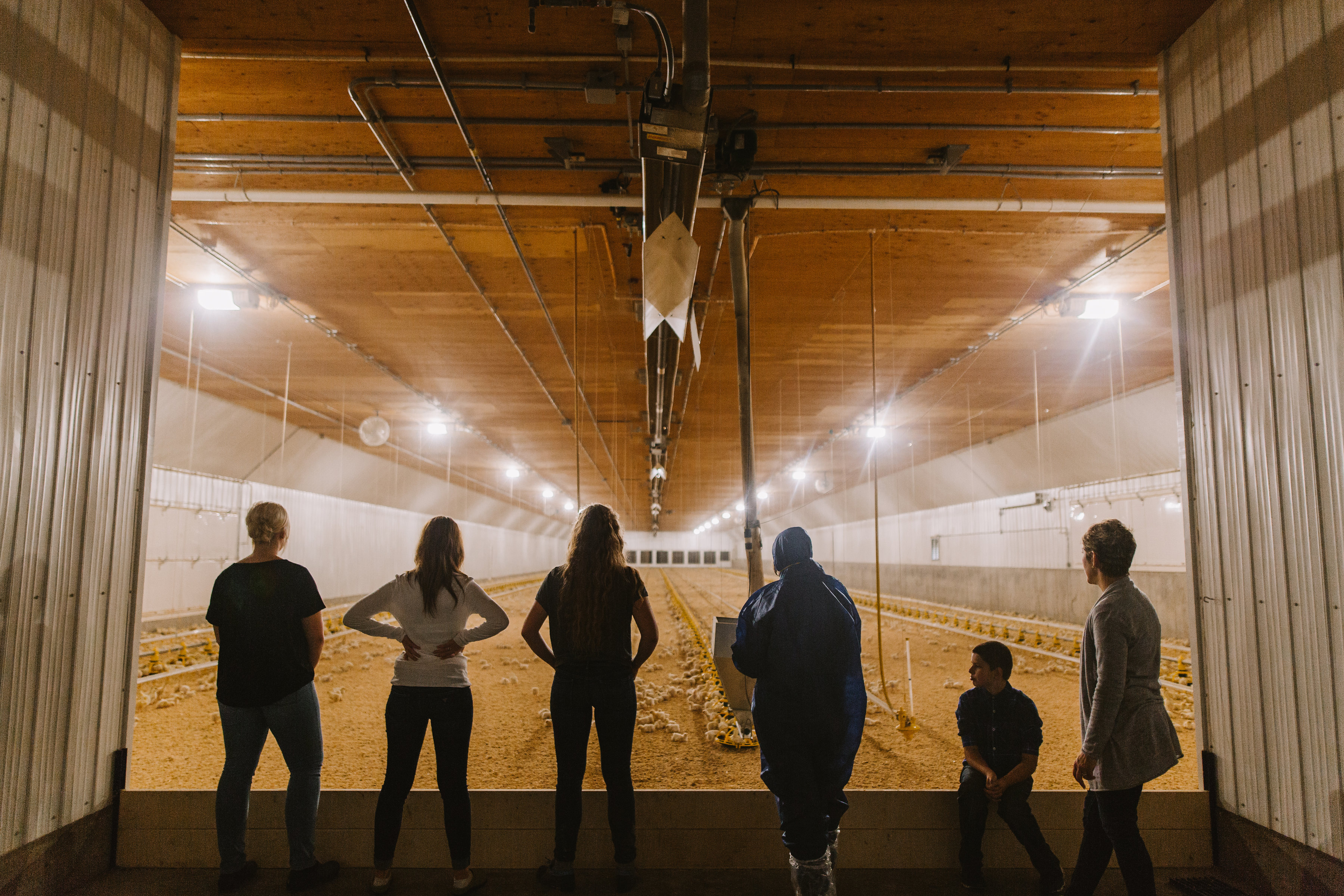


 Français
Français



March 23, 2017 (Ottawa) – Canada’s chicken farmers are appalled by the inaccurate and irresponsible portrayal of Canadian chicken production that is being used to target retail and foodservice companies.
Mercy for Animals, a U.S.-based activist organization, has recently been using sensationalized video footage and accusations implying that this is representative of Canadian chicken farms. Other groups have also been using questionable information to fuel their campaigns and push an agenda to eliminate animal agriculture and shutter Canadian farms. These tactics are shameful, inaccurate, deliberately misleading, and undermine the hard work and animal welfare standards of local Canadian farmers throughout the country.
“Over 90 per cent are family-owned and every farm is subject to mandatory and audited animal welfare standards that have zero tolerance for animal abuse,” says Benoît Fontaine, Chair of Chicken Farmers of Canada. “We believe that this video footage isn’t from a Canadian chicken farm and appears to be recycled from previous propaganda campaigns that have taken place in other countries.”
“Canadian chicken farms are run by hardworking men and women who take to heart their responsibility to uphold animal health and welfare on their farm and share Canadian values,” says Fontaine. “They are proud ambassadors in promoting and defending their good management practices, and believe that there is no defense for the mistreatment of birds.”
Canada’s farmers operate within a supply managed system. Supply management is a sustainable model that allows for the establishment and enforcement of a single, consistent credible animal welfare standard across the country.
Chicken Farmers of Canada’s Animal Care Program is effectively administered across all chicken farms – no other program can achieve this reach. Chicken Farmers of Canada administers this mandatory, third-party-audited Animal Care Program across all 2,800 chicken farms in Canada.
The program has credible, science-based foundations in that it is based on the Code of Practice developed by the National Farm Animal Care Council (NFACC). NFACC is a world leader in bringing together stakeholders with different perspectives – farmers, veterinarians, processors, transporters, animal welfare associations, and provincial/federal governments – to develop robust and sound Codes of Practice.
NFACC’s Code Development process begins with a full scientific review which is used to draft the Code that then undergoes a public consultation process. In this way, all Canadians have an opportunity to contribute to the final Code. The NFACC process is a standard that is internationally recognized and applauded.
The program recently completed an inaugural comprehensive third-party audit. NSF International’s report concluded that “The national Animal Care Program has been implemented effectively and maintained on an on-going basis. Animal care measures have been consistently applied.” NSF is an internationally-recognized, third-party certification body, accredited by the American National Standards Institute to ISO 17065.
Animal rights groups claim that mistreatment of animals has no place in society today. We agree. So let’s replace gossip with facts.
Six Facts You Should Know About How Canadian Chickens Are Raised:
Farmers in Canada have a responsibility to the birds they raise, to the industry, to their fellow farmers, and to all consumers for upholding high principles of animal health and welfare on the farm.
The farmers’ leadership in animal care will continue to evolve as we commit to working with the experts – including all industry stakeholder organizations from farm to table, the research community, and government regulators.
Background:
Chicken Farmers of Canada is responsible for chicken raised and sold commercially in Canada. Chicken Farmers of Canada represents the 2,800 chicken farmers from coast to coast, and ensures that the chicken that reaches Canadians’ tables is safe, delicious, and raised to the highest standards: yours.
www.chicken.ca | www.chickenfarmers.ca
-30-
For more information:
Marty Brett, Senior Corporate Communications Officer
(613) 566-5926
mbrett@chicken.ca